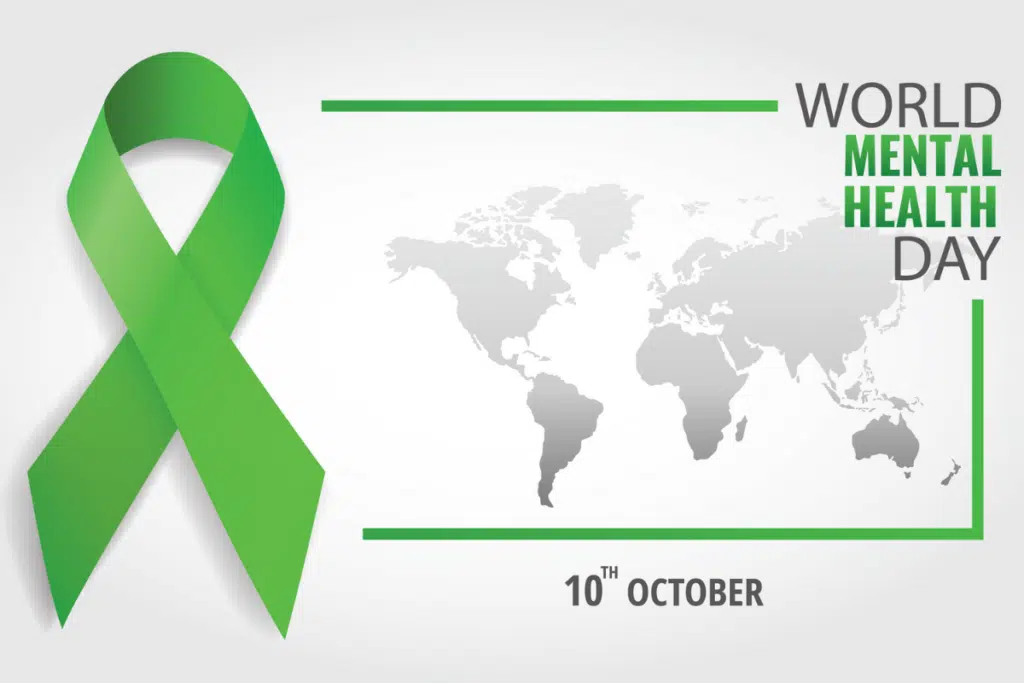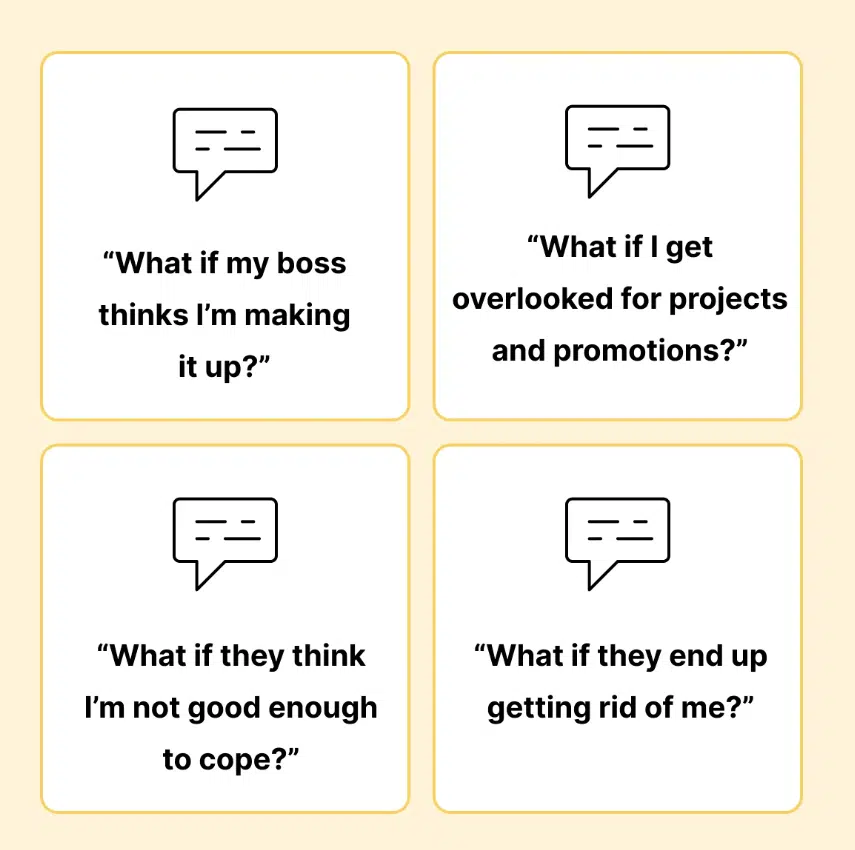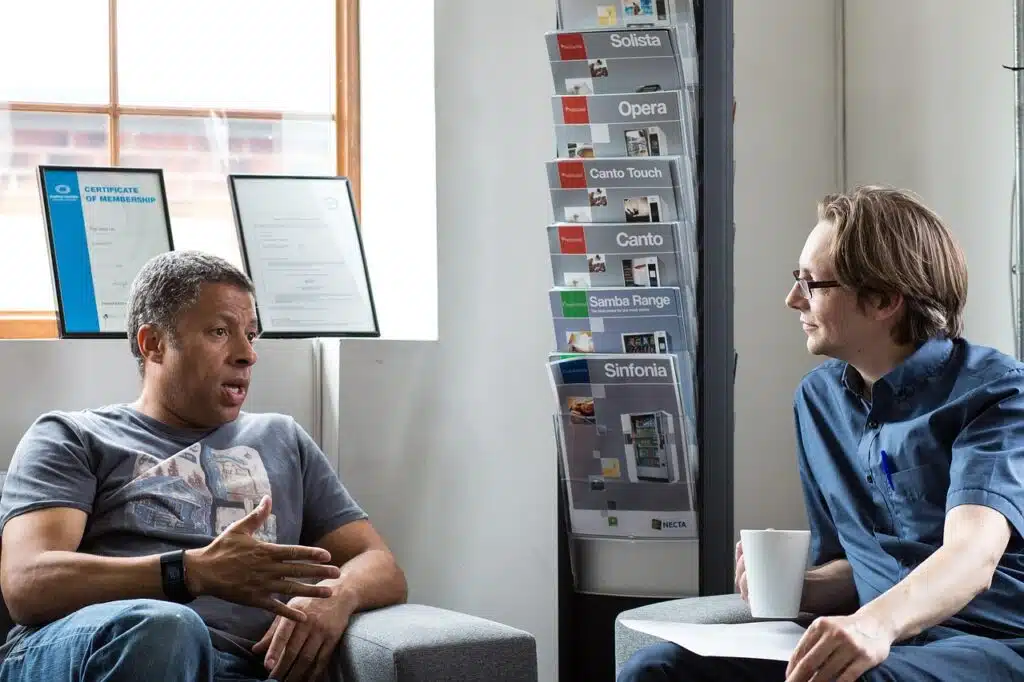Talking openly about mental health at work isn’t always easy. For many people, even figuring out how to talk about mental health can feel daunting, especially in professional environments where there’s still a lingering fear of judgement. But as awareness grows, so too does our opportunity to change the conversation for good.
With World Mental Health Day taking place on 10th October, it’s the perfect time to think about how we can make our workplaces kinder, more open, and more understanding when it comes to mental wellbeing. Whether you work in HR, a manager wanting to better support your team, or an employee who’s looking for the confidence to speak up, this guide will help you take meaningful steps toward removing stigma and starting honest conversations.
What Is World Mental Health Day?
World Mental Health Day is a global awareness day, first launched in 1992 by the World Federation for Mental Health. Its mission is simple yet powerful: to raise awareness of mental health issues, challenge stigma, and inspire action that makes mental health support accessible for everyone.
Each year, the day carries a different theme to guide global discussions and initiatives. It’s a moment when workplaces, schools, and communities come together to show solidarity and to remind one another that mental health matters every day of the year, not just on the 10th of October.
For businesses, it’s also an opportunity to reflect on how mental health is supported internally. A simple team check-in, sharing stories, or launching a wellbeing initiative can make a world of difference.

Mental Health in the Workplace in 2025
As we step further into 2025, mental health has become one of the most important factors shaping workplace culture and productivity. And the numbers show why.
In the UK, around 15% of employees have a diagnosed mental health condition, while work-related stress, anxiety, and depression led to over 17 million lost working days in 2023, according to Mental Health Foundation. Meanwhile, in the USA, roughly 83% of employees report feeling stressed at work, with burnout now recognised by the World Health Organization as an occupational phenomenon.
The reality is clear: mental health is no longer a private issue. But the good news is that companies are listening, especially with 26% of employees believing their employers are responsible for their mental wellbeing. Across the world, more companies are investing in wellbeing programs, mental health training, and support networks than ever before.
Still, stigma remains. Many employees say they wouldn’t feel comfortable admitting to a mental health struggle at work. That’s why learning how to talk about mental health is so crucial. From an article by Spill Team, here are some well-known examples of how mental health stigma can make it hard to identify your own feelings and get help are:

How to Talk About Mental Health (and Make Real Change)
Here are practical tips, for employers and for individual employees, on how to talk about mental health at work in meaningful, stigma-breaking ways.
For Employers: Creating a Culture That Speaks Up
Lead by example
- When senior leaders (CEOs, HR heads, business unit heads) share their own mental health journeys (even briefly), it humanizes the topic and signals psychological safety.
- Use internal communications, blogs, webinars, or “town halls” where mental health is not sidelined but normalized.
Normalize mental health conversations
- Include mental wellbeing in regular check-ins, performance reviews, 1:1s.
- Embed mental health messaging in all HR and internal comms (not just during awareness months).
- Use language that is inclusive, avoids shaming or minimizing (“stress,” “wellbeing,” “resilience”).
Train managers & equip them to be available
- Offer training so managers can recognize signs of distress, hold supportive conversations, and signpost help.
- Encourage availability: regular check-ins, open office hours, “how are you really?” prompts.
- Managers should explicitly ask, “how is your mental health?” (not just “how are you?”).
Create developmental opportunities & coaching
- Provide workshops, webinars, mental health first aid, resilience training, mindfulness sessions.
- Offer coaching or counselling access (EAP, internal or external) and ensure staff know how to access them.
- Encourage peer support groups or affinity networks (e.g. for mental health, caregivers, neurodiversity).
Introduce wellbeing action plans & workplace adjustments
- Let employees co-design a “wellbeing plan” (e.g. flexible hours, reduced load temporarily, phased return, “downtime” buffers).
- Make accommodations just as you would for physical health (e.g. adjusted deadlines, hybrid working, quiet spaces).
- Review and iterate these plans, they should evolve with need.
Encourage help-seeking and remove barriers
- Offer signposting: mental health apps, phone lines, counselling, national / local resources (UK: Mind, Samaritans; US: NAMI, Mental Health America).
- Demystify confidentiality, costs, time-off, and reassure that there is no penalty for raising concerns.
- Celebrate stories (voluntarily shared) of recovery or seeking help — human stories break shame.
Monitor, measure & iterate
- Use pulse surveys, anonymised mood trackers, “psychological safety” metrics, exit interviews to understand barriers.
- Assess uptake of support programs, usage of EAP, feedback from managers.
- Adjust strategy based on data — this is not a “one-off campaign.”
Tie mental health into broader strategy
- Position mental health as part of diversity & inclusion, ESG, retention, talent attraction.
- If using incentives or rewards (e.g. via Virgin Incentives!), include experiences that support wellbeing such as mindfulness retreats, nature-based experiences, spa days etc., as part of your offering.

For Employees & Team Members: Speaking Up Without Fear
You don’t need perfect wording, just openness
- You can start small: “Lately, I’ve been struggling with stress / low mood / anxiety. I’d like to talk about what support might help.”
- Use your 1:1s as a starting point. Even saying “I need mental health support” is enough.
Show vulnerability, it’s a strength, not a weakness
- Sharing that “I’m not okay today” or “I’m finding this hard” helps others see you’re human, often others feel the same but don’t say it.
- Let colleagues know: “I’m managing some mental load right now, I may shift deadlines or take breaks when needed.”
Don’t isolate, stay connected
- Don’t withdraw. Even small interactions (chat, coffee break, walk) help break isolation.
- Join or start peer groups, lunch clubs, walking meetings, wellbeing discussion groups.
Normalize mental health talk with colleagues
- Ask gentle open questions: “How are you managing?” or “I’m finding things tough, how about you?”
- Share coping techniques you find helpful (e.g. journaling, mindfulness, short breaks), others may adopt them.
Be armed with signposting & resources
- Keep a list of support services (internal resources, EAP, local / national charities) and share or refer others.
- Suggest team-level resources or workshops if none exist.
Don’t let stigma create self-doubt
- Recognize that needing help is human and valid.
- Remind yourself that speaking up builds stronger relationships, more sustainable performance, and better management of capacity.
Ask for concrete adjustments
- It’s okay to request temporary adjustments: altered hours, phased workload, remote days, break buffers, reduced meetings.
- Frame this as enabling you to be more effective long-term, not “less committed.”
Follow up the conversation
- After a mental health discussion, summarize next steps (e.g. adjustments agreed, follow-up check-ins) in writing to ensure clarity.
- Keep the communication ongoing, mental health is not a one-time topic.

Final Thoughts
Stigma doesn’t vanish overnight but consistency, empathy, and leadership can dismantle it over time. The more normal it becomes to ask “how are you really?” the less burden lies unspoken.
If you’re part of HR or leadership: commit to action, not just communication. Use World Mental Health Day as a milestone but not an endpoint. If you’re an employee: your voice matters. Use it when you can. Ask for small adjustments. Help others see they’re not alone.
If Virgin Incentives can support your internal wellbeing programs through our wellbeing experiences, flexible gift cards, or days out tied to mental health themes, we’d be glad to help. Let’s together make workplaces where mental health is spoken of and supported so that everyone feels empowered to show up as their whole, healthy self. Get in touch with our friendly team below to find out more about our wellbeing rewards:

